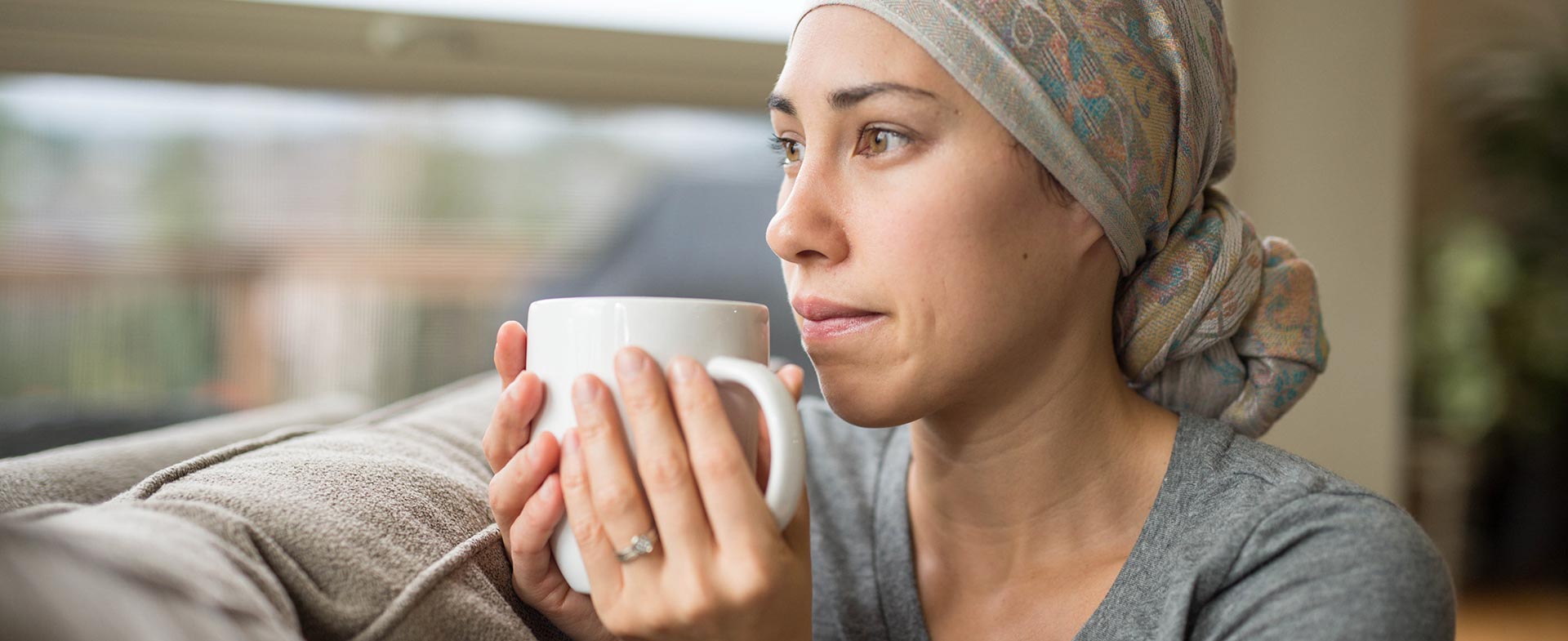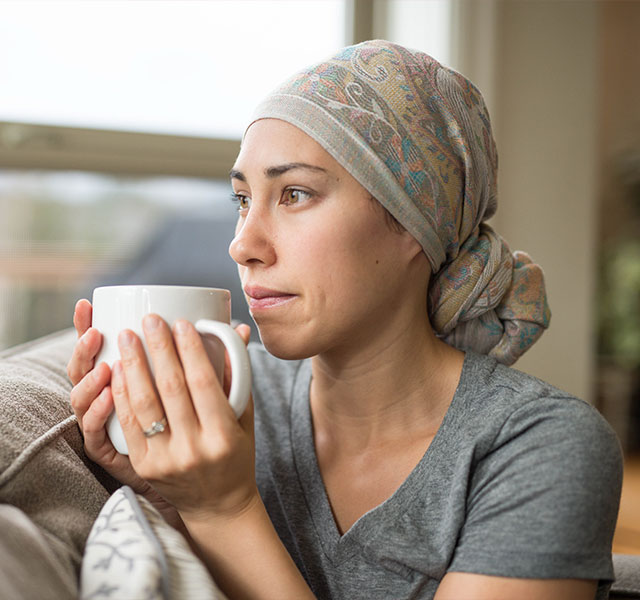Chemotherapy is one of the most common treatments used to fight cancer. It destroys cancer cells, preventing them from quickly multiplying and spreading. Thanks to innovative research and targeted therapies, more patients can receive treatments with fewer side effects, but chemotherapy can still place a burden on the body. Here are ten side effects from chemotherapy, and what you can do to ease them.
- Weakened immune system. “Chemotherapy kills cancer cells along with cells that defend your body from infection,” says Haythem Ali, M.D., a medical oncologist with Henry Ford Health. “When chemo begins, some patients are given a drug that stimulates production of immune cells so that when chemo starts to work, they’ll have a much higher level of immune cells to compensate for the loss.” Still, patients should protect themselves: stay away from large crowds and those who are ill, especially during the COVID-19 pandemic.
- Neuropathy. Certain chemotherapies restrict the amount of nerve chemicals and energy that nerve endings receive. This damages them and causes a sensation of numbness that most commonly occurs in fingers and toes. “Chemicals required for nerve function are transported to the nerve endings from their mother cell located in the spinal cord, and so the nerve endings that are farthest away from the spinal cord tend to be the most vulnerable. This leads to symptoms that start from the tips of the fingers and toes, and slowly marches up the hands and feet in a glove and stocking distribution,” says Dr. Ali. Neuropathy can also make these nerves sensitive to cold. If this is the case, wear gloves in the winter, don’t hold cold drinks, and don’t linger in front of the refrigerator. Acupuncture can also reduce symptoms, he says.
- Fatigue. “There are several reasons why chemo patients could be tired,” says Dr. Ali. “Since it lowers your red blood count, chemotherapy can cause anemia, resulting in fatigue. Thyroid disfunction due to chemotherapy can also make you tired, because the thyroid determines the rate at which energy is extracted from the metabolism. The wrong rates lead to a mismatch between energy need and available energy, leading to fatigue. Dehydration or electrolyte imbalance from chemo-induced nausea can also lead to fatigue. And some drugs can cause a deep feeling of exhaustion.”
- Insomnia. Steroids are often given to chemotherapy patients as an anti-nausea treatment, but the problem is that they simulate the function of the adrenal gland. (That’s the gland that makes you feel anxious when you are scared or worried about something.) Dr. Ali recommends avoiding caffeine, excess refined sugar, and alcohol—anything that can make you wired or lead to restless sleep. Having proper sleep hygiene habits—sleeping in a dark room, not using electronic devices before bed—are recommended as well.
- Hair loss. Losing your hair can be emotional: it’s both a body image and privacy issue. “Patients don’t like the fact that hair loss is basically declaring to the world that they’re on chemo,” says Dr. Ali. There is a technology called scalp cooling that patients can receive to reduce hair loss. “It’s not 100% effective, but it can help,” he says. The theory is that exposure to cold temperature will tighten blood vessels in the scalp, lessening the amount of chemo that reaches the hair follicles.
- Nausea. “Nausea and vomiting are side effects that most patients are afraid of, but there are now a variety of medications to prevent them,” says Dr. Ali. “Even if we fail during the first cycle of chemotherapy, the likelihood that we’ll get it right by the second cycle is very high. I wouldn’t worry about this one, even though it seems like it’s on patients’ minds.”
- Weight gain. Although weight loss might be an assumed side effect, with drugs to prevent nausea, Dr. Ali says he doesn’t see a lot of weight loss with chemo patients. “Often, for the first few days after chemotherapy, patients aren’t interested in food, and then they overcompensate. And if they’re on endocrine or hormone therapy, it can lead to a bit of weight gain.”
- Brain fog. Some chemotherapy patients say they are more forgetful. “They undergo a lot of stress, so that could play into it,” says Dr. Ali. “Most of the time they’re not very severe symptoms, but I encourage these patients to engage in puzzles that help memory and attentiveness. I recommend an app called Lumosity, which gives you three different exercises a day that take less than five minutes. It helps with memory, logic and spatial orientation.” Playing Sudoku, doing crossword puzzles, reading, and exercising can also help, he adds.
- Mouth sores. “Because of low white blood cell count, chemo can cause mucositis, or inflammation that manifests itself as mouth sores,” says Dr. Ali. “One of the most important things you can do to reduce your risk is keeping your mouth as clean as possible. Brushing your teeth and gargling with salt water or baking soda (especially after meals) will help neutralize acid in the mouth and decrease bacterial content, reducing the likelihood of mucositis.”
- Menopause. Chemotherapy can push someone who is in pre-menopause into menopause, and someone who is already in menopause into a deeper, more estrogen-deprived menopause. “Joint stiffness, hot flashes, osteoporosis, and high cholesterol are side effects that can become accelerated,” says Dr. Ali. “We’ll give patients vitamin D and calcium if necessary, and things like acupuncture can help with hot flashes.”
Whatever side effects you are feeling or questions you have about chemotherapy, speak up—your care team is there to help you every step of the way.
To make an appointment with a cancer specialist, visit henryford.com/cancer or call (888) 777-4167.
Haythem Ali, M.D., is a medical oncologist who sees patients at the Henry Ford Cancer – Brownstown and Henry Ford Hospital in Detroit.



